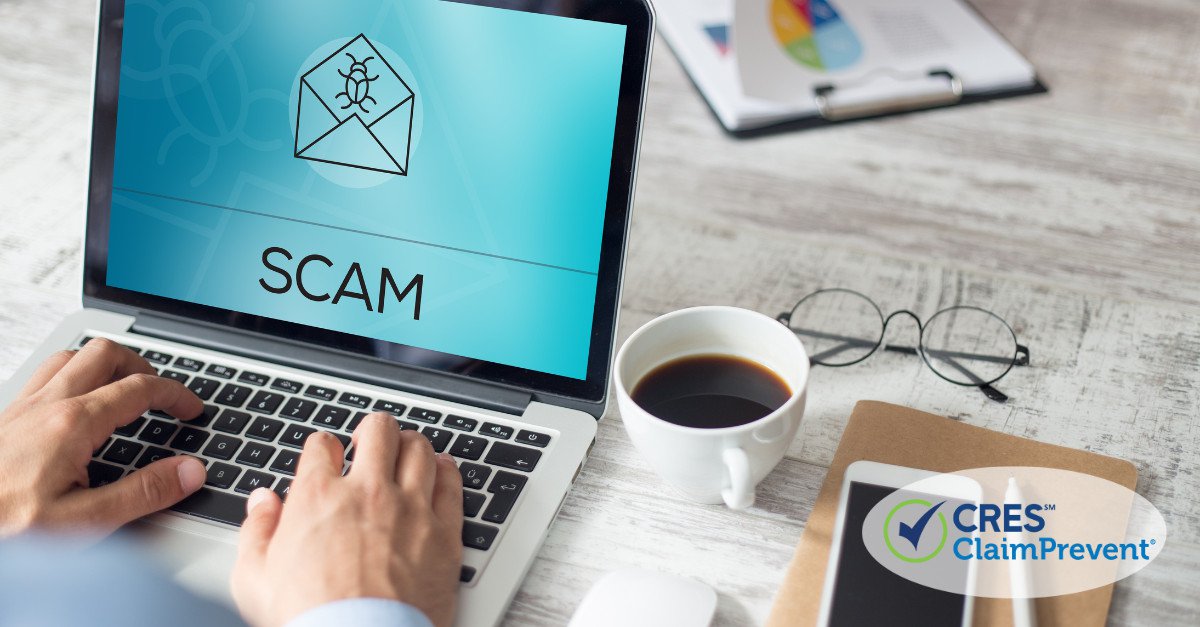Real estate scams are becoming more and more prevalent. Housing scammers are finding new and sophisticated ways to try and dupe people into handing over their hard-earned cash. Not only do these scams pose significant risks to potential buyers and clients, they can also result in real estate licensees facing lawsuits, leading to reputational and financial damages.
In this blog, we take a look at how scammers are lifting images from Multiple Listing Service (MLS) listings for use on other websites, and how real estate licensees can protect themselves, their listings and their clients.
MLS Photo-lifting Scams
A common scam is the unauthorized lifting of photos from existing MLS listings for use on other websites. Scammers will often use the listing licensee’s real name, but they will create a fake email address that closely resembles their real contact details. The scammers then try to exploit unsuspecting buyers into paying hefty deposits for properties that are not legitimate sales. They also prey on buyers who are happy to purchase a property sight unseen.
How to Protect Against MLS Photo-lifting Scams
Real estate licensees must be proactive to mitigate the risks. Here are some tips:
Regularly monitor listings
Licensees should regularly monitor listings to identify if there are any duplicates for properties they are selling. Setting up Google alerts for your listing addresses can also highlight if there are duplicate listings.
Consider watermarking your images
Watermarking images on real estate listings can help secure your photos and make it more difficult for scammers to misuse them.
Report any suspicious activity immediately
When a scam is identified, make sure you report it to the Federal Trade Commission so that it can be dealt with appropriately. The FBI also has an Internet Crime Complaint Center where complaints can be lodged.
Educate your buyer clients about your sales process
To protect your buyer clients from being victimized by a housing scam, ensure you provide clear advice about how the sales process works. Outline how deposits are paid and transactions are settled. It can also be helpful to tell clients that if they receive a request for funds that they are unsure about, they should call you directly to confirm its legitimacy before making any payments.
Boost public awareness about scams
Real estate licensees can help to boost public awareness about scams by outlining what red flags prospective buyers should look for. These include:
- Properties that seem too good to be true probably are. When a listing appears to be significantly underpriced, it is a red flag.
- Buyers should be encouraged to do their due diligence and inspect a property before handing over deposits or large sums of money to purchase. There is a significantly greater risk involved if purchasing a property sight unseen.
- Often fake listings will have typos and grammatical errors becauses they may be written by scammers in other countries.
- Scams often involve a sense of urgency. If a prospective buyer feels rushed to sign a contract or to pay a deposit, this can be an indication of a scam.
Keep updated about new housing scams
Real estate licensees should keep updated about new housing scams by consulting with trusted sources of information. This includes alerts from the US Government, the FBI and the Federal Trade Commission. Useful information can also be obtained from your local professional association or REALTORS® Association. These resources provide valuable insights and guidance to help real estate licensees to keep informed.
Read more in our ClaimPrevent® Summary: Real Estate Licensee Responsibilities When Creating New Listings
Ensure Your Real Estate Business Is Protected
CRES is part of one of the largest insurance brokers in the world, with access to more E&O options than anyone else. We can find you the best protection at the best price.
With CRES Errors & Omissions Insurance + ClaimPrevent®, you’ll have access to extensive coverage and insurance protection specific to your real estate business. If you find yourself needing to defend a claim, you’ll have protection for yourself and your business. What’s more, you’ll also have access to legal advice from our highly rated expert real estate attorneys — pre-claim. Our legal team can help you prevent claims before they happen.
Contact the CRES team at 800-880-2747 to find out more today. We can customize a policy specifically to suit your needs.
